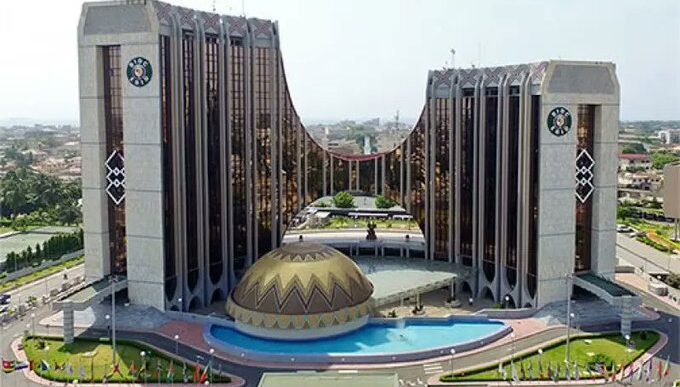The Nigerian Association of Resident Doctors (NARD) has announced that, effective Tuesday, October 1, 2025, its members will no longer engage in continuous call duties that extend beyond 24 hours.
This landmark directive, disclosed by NARD President, Dr. Mohammad Suleiman, in an exclusive interview, represents a major shift in Nigeria’s healthcare work culture. The move, according to Suleiman, is aimed at protecting doctors from the dangerous effects of extreme fatigue while simultaneously ensuring safer and more effective patient care in the country’s hospitals.
The decision comes after years of complaints from resident doctors about the toll of marathon duty shifts—often lasting 36 to 48 hours—on their physical and mental well-being, as well as the rising concerns over medical errors linked to exhaustion.
Why Resident Doctors Are Saying No to Extended Shifts
For decades, resident doctors across Nigeria’s public hospitals have shouldered the bulk of the healthcare workload, serving as the backbone of tertiary medical institutions. Their responsibilities range from handling emergencies to managing patients in wards and providing support for surgical procedures.
Traditionally, many teaching hospitals and federal medical centers have required resident doctors to remain on call for well over 24 hours at a stretch, especially in departments such as surgery, obstetrics and gynecology, pediatrics, and internal medicine. In some cases, young doctors have reported staying in the hospital for up to 48 consecutive hours before being relieved.
Dr. Suleiman explained that such prolonged duty hours are no longer acceptable in modern medical practice:
“We have weighed the risks against the supposed benefits. The truth is that doctors who are fatigued cannot deliver optimal care. Patients deserve to be treated by professionals who are alert, focused, and in the best condition to make life-saving decisions. Allowing continuous call duties beyond 24 hours is both unsafe and exploitative,” he said.
Protecting Doctors, Protecting Patients
The association’s new directive is not only about the welfare of resident doctors but also about safeguarding the lives of patients who often depend on their judgment in critical situations.
Studies in other countries have shown that long, uninterrupted shifts significantly increase the likelihood of medical errors. The World Health Organization and several international medical councils have long recommended duty-hour restrictions for physicians in training.
Dr. Suleiman stressed that Nigeria cannot afford to ignore these global best practices any longer:
“This is not about convenience. It is about safety. Just as a fatigued driver should not be allowed to stay behind the wheel of a car, a doctor who has been awake for 36 hours should not be making crucial decisions in an operating theatre or emergency ward. Our health system must prioritize both the workers and the patients they serve.”
A Struggle Years in the Making
The issue of prolonged call duties has been a recurring grievance in the long history of NARD’s negotiations with the government. Resident doctors have consistently highlighted the dangers of sleep deprivation, burnouts, and its link to brain drain—where young doctors leave Nigeria for countries with better working conditions.
The new directive follows months of consultations within the association, including feedback from its various chapters across the country. NARD leadership confirmed that the decision enjoys overwhelming support among members, who believe it is long overdue.
One senior registrar in Lagos, who preferred not to be named, told this reporter:
“It’s a huge relief. Many of us have been close to breaking point. There are days I’ve worked 36 hours straight with barely an hour’s rest. It’s not sustainable. Some of us have had near accidents while driving home after call duty. This new rule will save lives.”
How Hospitals Will Adjust
The directive means hospitals will now have to restructure duty rosters to ensure no doctor is left on call beyond the 24-hour limit. This could involve employing more doctors, redistributing workloads among consultants and senior registrars, or improving support from other healthcare professionals such as nurses and physician assistants.
However, hospital administrators may face challenges implementing the changes, given Nigeria’s chronic shortage of healthcare workers. The doctor-to-patient ratio remains far below the World Health Organization’s recommended standard of one doctor to 600 patients. In some states, a single doctor attends to thousands of patients.
Medical analysts warn that without recruitment of additional staff, the new policy could strain already overstretched facilities. But NARD maintains that hospitals must adapt to avoid endangering both doctors and patients.
Global Comparisons
Nigeria’s new stance aligns with reforms that have taken place in other parts of the world. In the United States, resident work hours are capped at 80 per week, with no shift lasting more than 24 consecutive hours. The European Working Time Directive limits doctors’ weekly working time to 48 hours.
Dr. Fatima Ibrahim, a health systems researcher at the University of Ibadan, believes Nigeria’s move is a positive step toward aligning with global standards:
“Medical training is demanding everywhere, but duty-hour restrictions are now the norm across developed and even many developing countries. Nigeria has been lagging behind, and this decision by NARD is a corrective step in the right direction.”
Government and Public Reaction
The Federal Ministry of Health has not yet issued an official response to NARD’s announcement, but insiders say policymakers may need to move quickly to ensure hospitals adjust without disruptions to patient care.
Public reaction has been largely supportive. On social media, many Nigerians expressed shock at learning that doctors were routinely forced to work for over 24 hours without rest. Some described it as “inhuman” and “unsafe for everyone.”
Healthcare advocacy groups have also welcomed the development. The Health Rights Action Network (HRAN), in a statement, praised NARD’s leadership for prioritizing safety:
“This decision will ultimately save more lives than it costs. Doctors must be given humane working conditions if they are to provide humane care to patients.”
Potential Challenges Ahead
While the directive is a victory for resident doctors, implementation may face hurdles. Hospitals in rural areas, where staffing is already inadequate, may struggle to fill rosters. There is also concern that without increased government funding, teaching hospitals may resist the change.
Furthermore, Nigeria’s ongoing challenge of brain drain may worsen the situation. Thousands of doctors leave the country annually for better opportunities abroad. Unless retention strategies improve, enforcing shorter duty hours could put pressure on an already shrinking workforce.
Still, NARD insists the health of doctors cannot continue to be sacrificed:
“We will not accept excuses anymore. Our doctors must not be worked to death. It is not negotiable,” Dr. Suleiman emphasized.
A Turning Point for Nigeria’s Healthcare
The October 1 directive by the Nigerian Association of Resident Doctors could mark the beginning of a significant cultural shift in the country’s medical sector. If successfully implemented, it will reshape how hospitals function, how doctors are trained, and how patients are cared for.
It may also help slow the exodus of young doctors seeking better conditions abroad, showing that Nigeria is willing to reform in line with global best practices.
Healthcare observers believe this could be the start of wider reforms in the sector, particularly regarding working conditions, staff welfare, and hospital funding.
Conclusion
The Nigerian Association of Resident Doctors’ bold decision to end marathon call duties beyond 24 hours represents a watershed moment in the fight for humane working conditions and safer patient care in Nigeria.
As Dr. Mohammad Suleiman and his colleagues lead this reform, the onus now rests on hospital administrators, policymakers, and the federal government to ensure that the directive is not only implemented but sustained.
For Nigeria’s health system, already plagued with multiple challenges, this could be a critical turning point. The days of exhausted doctors making life-and-death decisions after 36 hours without sleep may finally be coming to an end.














